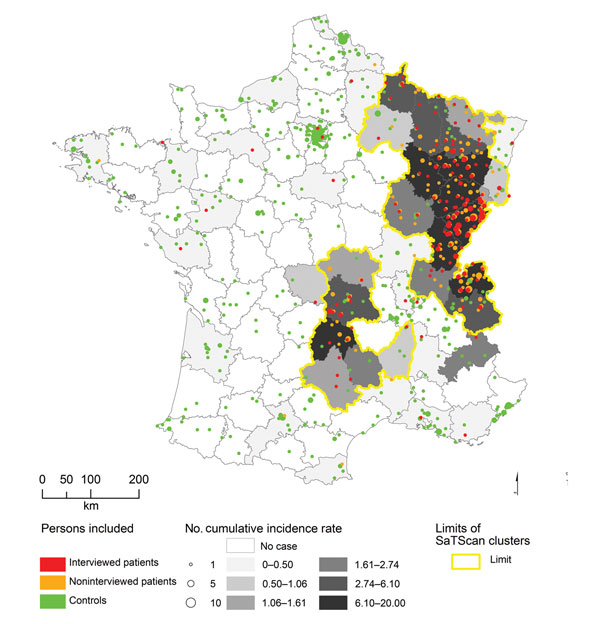Volume 19, Number 5—May 2013
Research
Populations at Risk for Alveolar Echinococcosis, France
Figure 1

Figure 1. . Location of patients, controls, and areas in France where persons are at risk for alveolar echinococcosis. The main area for human risk is located in eastern France and includes the départements (second largest administrative areas in France) where persons are at risk for alveolar echinococcosis of clusters 1, 2, and 4 as defined by SatScan analysis (Kulldorff, Boston, MA, USA; and Information Management Services, Inc., Rockville, MD, USA). Clusters 3 and 5 are located in the mountains of Massif Central and constitute the second area where persons are at risk.
1Additional members of the FrancEchino Network who contributed data are listed at the end of this article.
Page created: April 23, 2013
Page updated: April 23, 2013
Page reviewed: April 23, 2013
The conclusions, findings, and opinions expressed by authors contributing to this journal do not necessarily reflect the official position of the U.S. Department of Health and Human Services, the Public Health Service, the Centers for Disease Control and Prevention, or the authors' affiliated institutions. Use of trade names is for identification only and does not imply endorsement by any of the groups named above.